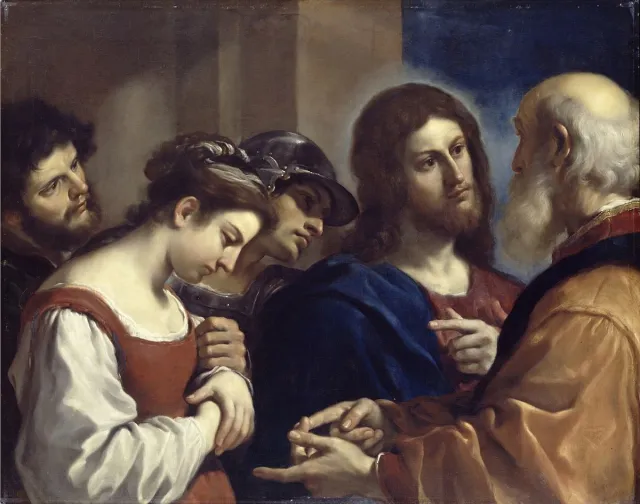Jijo Kandamkulathy, CMF
Claretian Publications, Macau
Gospel Reflection – Mk 10:2-16
27th Sunday in Ordinary Time – Year B
The gospel today narrates two incidents: one, a question on divorce and the second, Jesus reprimanding the disciples for preventing children going to him.
The first question is about legality. The Jewish lawyers came to ask a question on divorce, not to learn anything new, but to test the depth of knowledge of this master in the Jewish traditions.
Their debate was: if it was legal to divorce. Given the respect that Jesus gave to women, the question must have arisen to trap Jesus speaking against the law of Moses in defense of the women. According to the Mosaic law, a woman could be divorced. Hillel school of Jewish law which was prominent in the time of Jesus held an interpretation that a woman could be divorced just for not cooking good food! In situations like this, the rabbis typically quoted the commentaries of other scholarly rabbis to establish their argument, which also proves their erudition.
When Jesus questions them on the Mosaic law, the lawyers insist that divorce practices are allowed by Moses cornering Jesus to say a yes or no to divorce. Jesus deftly gets out of the choice of answers they gave and invites their attention to the divine intentions of marriage. Jesus responds not quoting other rabbis but quoting God from Genesis, that a marriage was indissoluble. He also says, it was not Moses who gave the permission to divorce. Even before Moses, human hard heartedness had already begun the practice which Moses had to incorporate in the law. The lawyers were speaking of Mosaic law and Jesus on divine law. Jesus does not deal with the intricacies of an unjust law, rather deals with divine intentions. Jesus has often reinterpreted the laws according to the mind of God (Mathew 5: 21-37). Our social norms and political laws, often do not incorporate the mind of God, but rather create a framework for defending minimum justice.
Parsing of the rule that Jesus says, if a man divorces a woman except for reasons of adultery and marries another woman, he commits adultery. If the woman divorces a man and marries another, she also commits adultery. The second phrase is, provocative and scandalous to empower the woman to initiate divorce. Mathew has skipped this scandalous part! If we read this in the background of the Mosaic law to kill the man and the woman committing adultery (Lev. 20:10), Jesus was naturally challenging the interpretation of the laws that gave convenient supremacy to men in this regard. Jesus was delegalizing (annulling) many marriages that the Jews considered legal after the man had served a divorce notice and remarried.
Ultimately, what takes precedence? A proper discernment must be made to know if it is divine law or human law that is at work at any divorce case. According to the divine law, marriage is indissoluble. We are not ignoring the facts about the impossibility of living with partners with abusive behavior to the spouse and children. Living with abusive partners will make indelible psychological scars in the victim spouse, and children. In most abusive cases, preexisting behavioral conditions that impede persons from giving informed consent at the time of marriage exist, although it may not be apparent at the time of the marriage. Such cases, the Church annuls. No one should be forced to live in an abusive relationship. Divorce is their only source of protection. Compassion on anyone who is victimized in a relationship should be the primary consideration in such divorce cases.
The other incident narrated in the gospel is that of the children trying to approach Jesus. The kids probably approached Jesus playfully and the disciples prevented them from going to him. Jesus asks the disciples to let them meet him. Why did the disciples prevent them? The disciples might have imagined that, they cannot speak rationally, they are not serious, they do not have important matters to discuss. So, childhood is a symbol of people who have difficulty to reason properly and speak their mind sensibly. It is important to see, what are the reasons we cite to keep people away from the Church and what reasons do we have to keep some people away? It is also good to check, if I become at least temporarily, part of the category of people that I might prevent from coming into the Church.
The other incident narrated in the gospel is that of the children trying to approach Jesus. The kids probably approached Jesus playfully and the disciples prevented them from going to him. Jesus asks the disciples to let them meet him. Why did the disciples prevent them? The disciples might have imagined that, they cannot speak rationally, they are not serious, they do not have important matters to discuss. So, childhood is a symbol of people who have difficulty to reason properly and speak their mind sensibly. It is important to see, what are the reasons we cite to keep people away from the Church and what reasons do we have to keep some people away? It is also good to check, if I become at least temporarily, part of the category of people that I might prevent from coming into the Church.


 Follow
Follow


